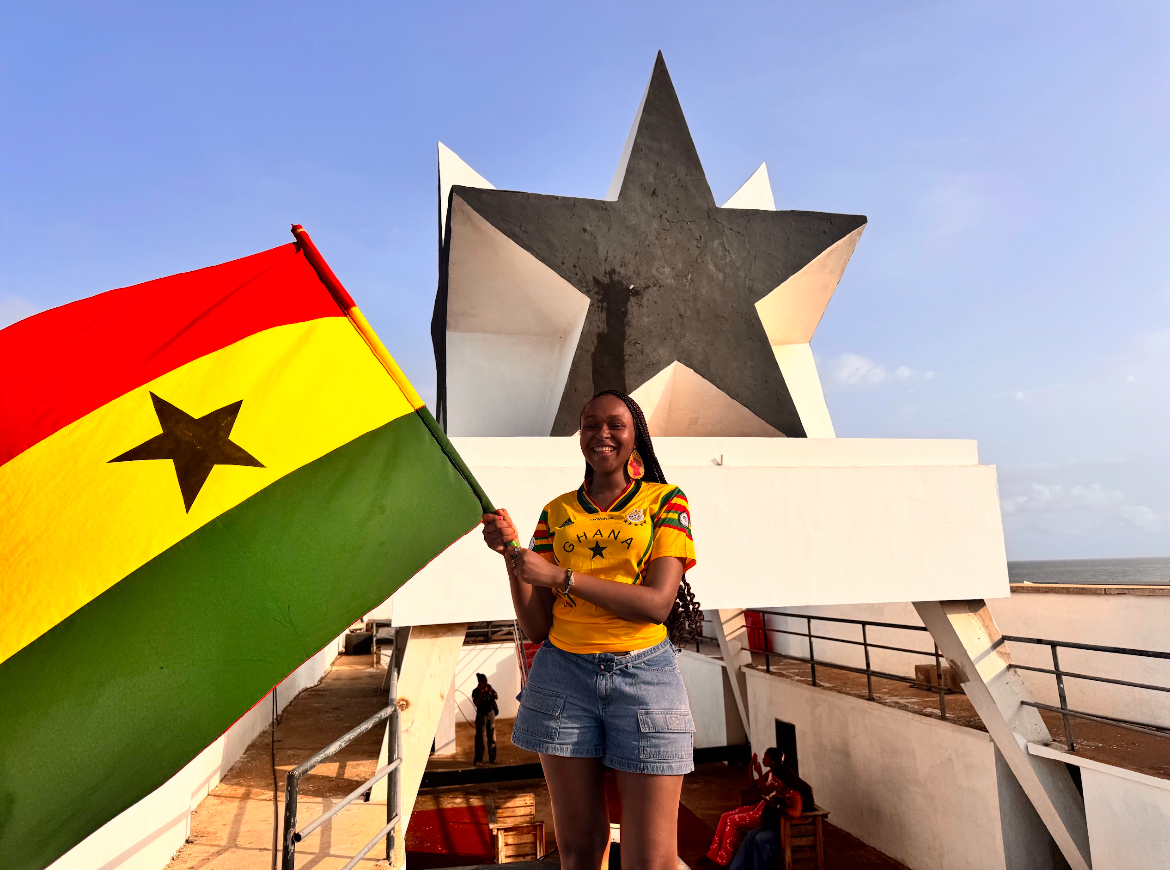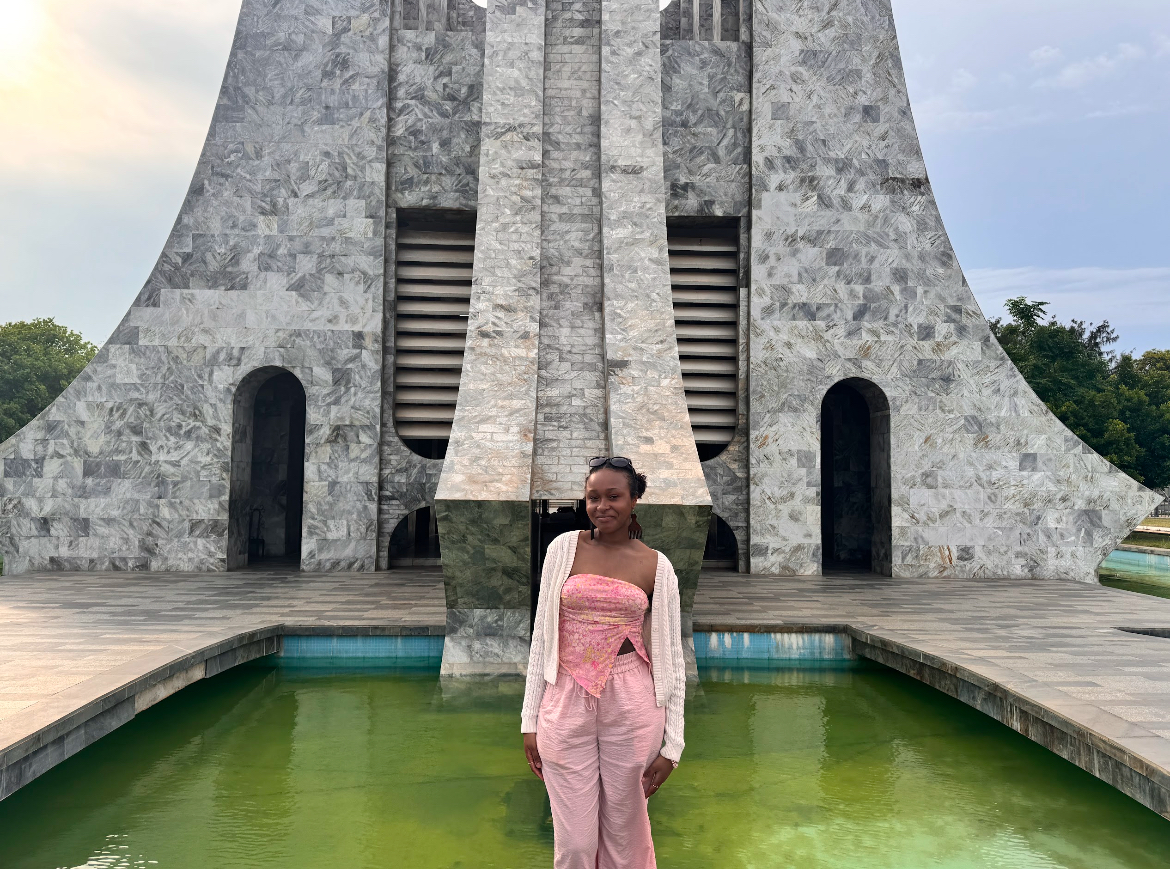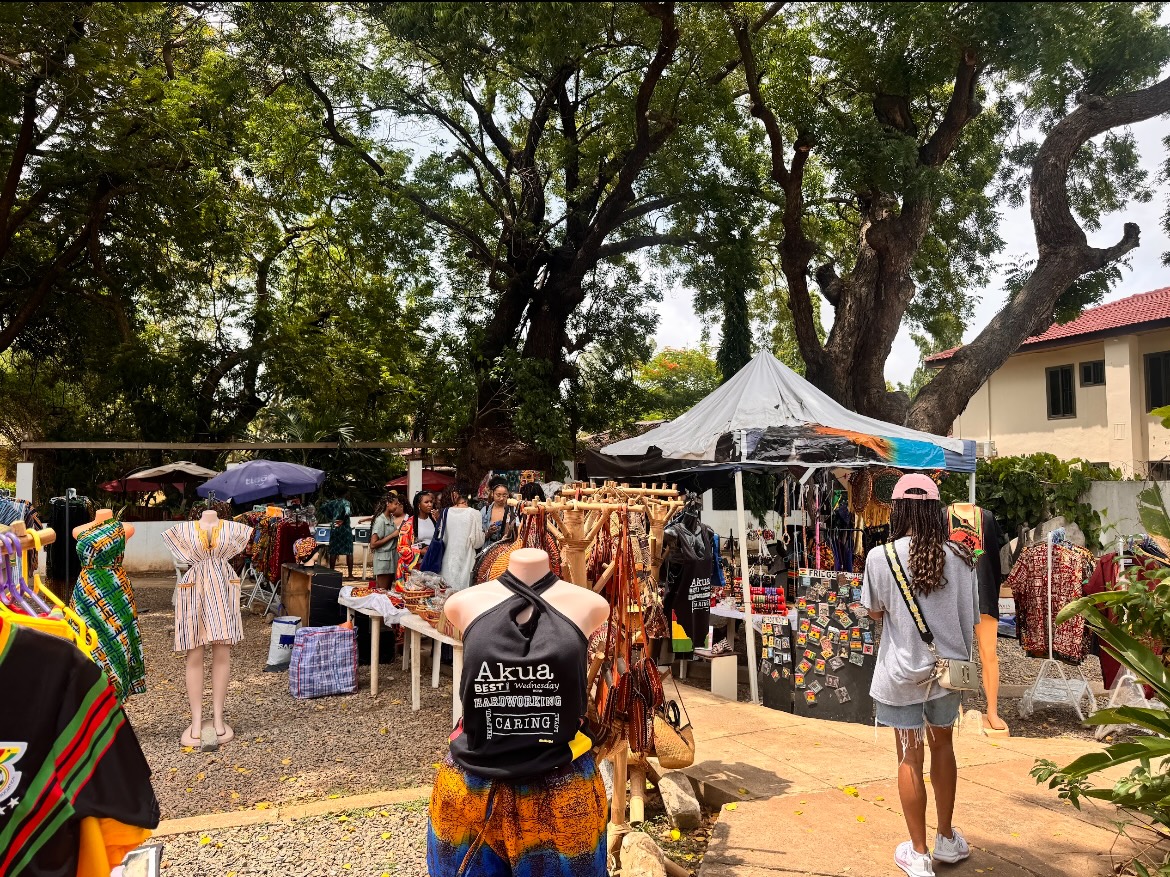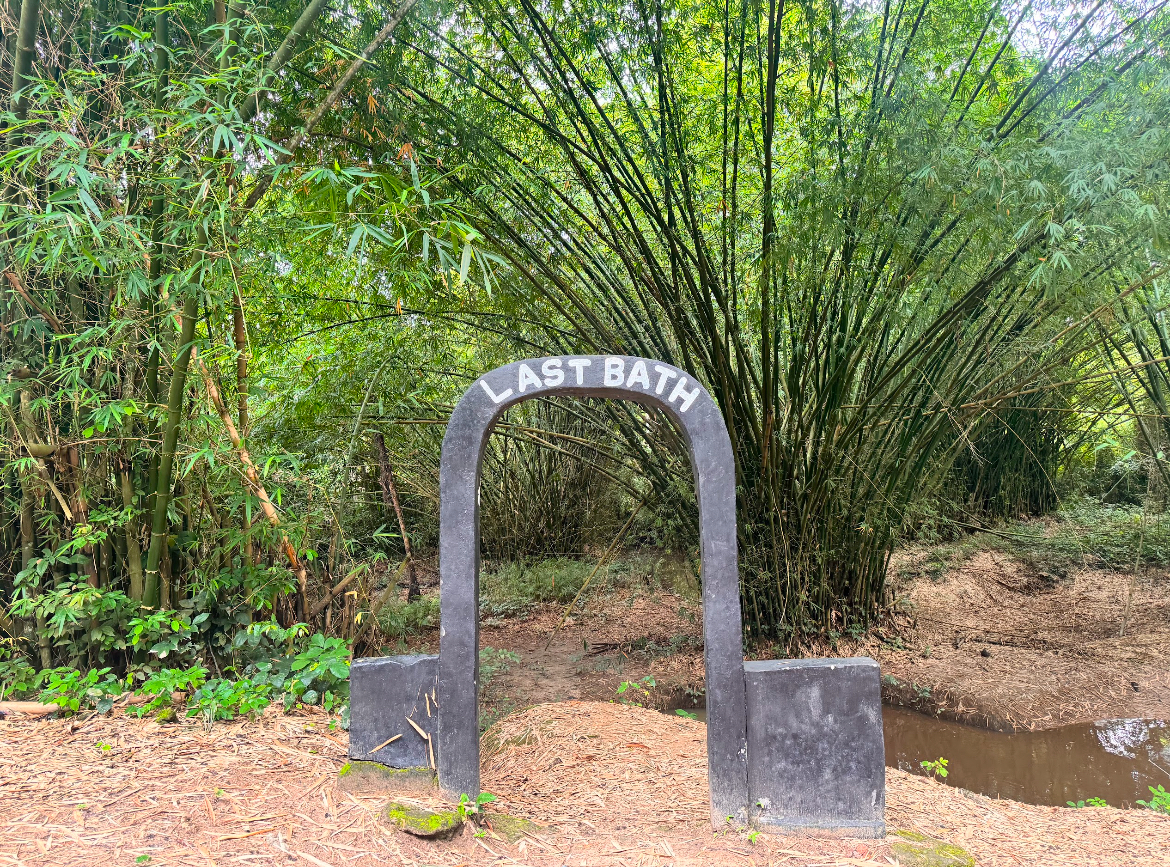Parker Chambers Takes On Ghana: A Journey of Learning and Discovery
Traveling Abroad was an Exploration into the Unknown and a Long-awaited Homecoming
Parker Chambers, an economics major with a minor in public health from Pasadena, California, is a proud member of Spelman College’s class of 2026. Over the course of two weeks following the spring semester this year, she joined 20 Spelman scholars on a life-changing study abroad experience in Accra, Ghana, through the CIEE Legon program.
During this immersive trip, the students enrolled in a Twi language course, an intercultural engagement seminar, and had several thought-provoking guest lectures. Their academic learning was enriched by excursions to cultural landmarks such as the Kwame Nkrumah Memorial Park, W.E.B. DuBois Memorial Centre for Pan-African Culture, and a transformative weekend visit to Cape Coast.
 For Chambers, stepping foot in Ghana as an African American woman felt like both an exploration into the unknown and a long-awaited homecoming. Although she doesn't know her exact ancestral roots, she experienced a strong connection to the land and its people, especially during the group’s visit to Cape Coast.
For Chambers, stepping foot in Ghana as an African American woman felt like both an exploration into the unknown and a long-awaited homecoming. Although she doesn't know her exact ancestral roots, she experienced a strong connection to the land and its people, especially during the group’s visit to Cape Coast.
The words of Ghana’s first president, Kwame Nkrumah, captured her experience best: “I am not African because I was born in Africa, but because Africa was born in me.” This sentiment resonated with her, as it affirmed the identity of many African Americans who may not have clear ties to a particular ethnicity or region, but still feel spiritually and historically connected to Africa.
One of the most meaningful realizations for Chambers was how she was perceived in Ghana—not through the lens of race, but as an individual. Her identity as an American stood out more than her Blackness, which was a freeing experience. In Ghana, she was not defined by how others viewed her skin color, but simply as Parker Olivia Chambers, and she felt accepted for exactly who she was.

In the Twi language class, Chambers learned key phrases like “medaase” (thank you), “akwaaba” (welcome), and how to introduce herself using her Ghanaian day name: “Me din de Abenaa” (My name is Abenaa), given to girls born on Tuesday. Discovering the cultural significance of Ghanaian names became one of her favorite parts of the experience. She learned that naming traditions in Ghana, especially among the Akan people, are tied to identity, family, and spirituality. Unlike typical American naming practices, many Ghanaian names derive from the day of birth and include compound structures that convey lineage—such as Obeng Gyasi, meaning “Obeng son of Gyasi.” was fascinated to learn that naming ceremonies occur eight days after birth, creating a communal experience rooted in tradition and meaning.
Being able to use Twi outside the classroom, in markets and conversations, was empowering for Chambers. It allowed her to show respect, connect with others, and further her sense of belonging.
“Language is more than communication, but a way to show people that you see them and value them,” she shared.
A highlight of the cultural immersion was learning how to bargain in local markets. Like many Westerners, quickly realized that her perceived wealth meant prices were often raised for her. Though she enjoyed the experience of negotiating, she remained mindful that the vendors relied on these sales to support their families. Her favorite market was the Accra Arts Centre, where she purchased handmade jewelry and souvenirs for her family. She described the market as vibrant and full of life. There were shops selling mangoes, jewelry, colorful textiles, carved sculptures, and more. Sellers often approached her enthusiastically, inviting her into their shops. Though at times overwhelming, she embraced the interactions as part of the authentic Ghanaian experience. One of the most impactful guest lectures came from Michael Williams, the founder of CIEE Ghana. His discussion shed light on the economic realities of the African continent. was struck by his analysis of how Africa’s power is limited by a lack of internal trade and uneven resource distribution. Williams emphasized the need for regional unity and infrastructure development beyond the major cities like Accra. For example, Chambers noted many people from rural areas travel to Accra in search of work, contributing to overpopulation in the Greater Accra Region. She reflected on the potential of a more united Africa, one that could reclaim its power and resources lost during centuries of colonization and exploitation.
One of the most impactful guest lectures came from Michael Williams, the founder of CIEE Ghana. His discussion shed light on the economic realities of the African continent. was struck by his analysis of how Africa’s power is limited by a lack of internal trade and uneven resource distribution. Williams emphasized the need for regional unity and infrastructure development beyond the major cities like Accra. For example, Chambers noted many people from rural areas travel to Accra in search of work, contributing to overpopulation in the Greater Accra Region. She reflected on the potential of a more united Africa, one that could reclaim its power and resources lost during centuries of colonization and exploitation.
The most emotional part of the trip was the visit to Cape Coast Chambers said. There, she and her group toured the Assin Manso Ancestral Slave River Site, one of the largest slave markets during the transatlantic slave trade. This location was where captured Africans took their “last bath” before being sold, branded, and marched to places like Cape Coast Castle. Learning about the brutal conditions, including forced marches, sacrifice of the vulnerable, and the stripping away of dignity, was heartbreaking. Yet, also saw resilience in these stories. Some captives resisted by refusing to eat, even under threat of violence such as force feeding or beatings. At Cape Coast Castle, Chambers walked through the haunting slave dungeons, where enslaved Africans were held in darkness and suffering. Above these dungeons sat Christian churches, a painful contradiction that highlighted the cruelty masked by religion. She walked through one of the infamous “doors of no return”— a symbolic threshold that many Africans crossed, their last time being in Africa, before being taken to the Americas. That moment left a profound mark on her. She now hopes to visit other “doors of no return” around the world, honoring the lives of those who were taken and never able to return.
At Cape Coast Castle, Chambers walked through the haunting slave dungeons, where enslaved Africans were held in darkness and suffering. Above these dungeons sat Christian churches, a painful contradiction that highlighted the cruelty masked by religion. She walked through one of the infamous “doors of no return”— a symbolic threshold that many Africans crossed, their last time being in Africa, before being taken to the Americas. That moment left a profound mark on her. She now hopes to visit other “doors of no return” around the world, honoring the lives of those who were taken and never able to return.
This journey to Ghana fundamentally changed Chambers' perspective on identity and belonging. She recognized the stark contrast between life in the United States, fast-paced, individualistic, and capitalist, and the slower, more community-oriented rhythm of Ghanaian life. By intentionally immersing herself in the Ghanaian way of life, she grew in patience, empathy, and global awareness.
To Chambers, this trip was not just about studying abroad — it was about reclamation. It was about rediscovering a part of herself through the land, language, and people of Ghana. She hopes more Spelman students take advantage of this opportunity.
“This experience will change you in ways you can’t prepare for,” she said, “but those changes will stay with you forever.”
